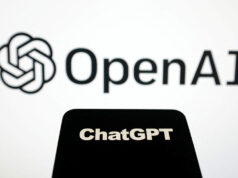By Zsarlene B. Chua
Reporter
SOCIAL networking giant Facebook has clamped down on misinformation about the coronavirus disease 2019 (COVID-19) across its apps as more and more people turn to social media not only to connect with loved ones but also to look for information about the pandemic.
And they’ve done so by adding “eight more fact-checking partners” from March to April to bring their fact-checking network to 60 partners debunking claims in more than 50 languages. In the Philippines, their third-party fact-checking partners are AFP, Rappler, and Vera Files.
“We’ve taken steps, a lot of steps to make sure people have access to accurate information, limit misinformation and harmful [content],” Clare Amador, head of public policy at Facebook Philippines, said in a digital conference on May 5.
In the months since the pandemic raged and more people practiced social distancing, Facebook has noted an increase in traffic across its family of apps (Instagram, Messenger, Facebook, and WhatsApp) with 3 billion people using them each month while Facebook gets 1.73 billion users a day in the first quarter of 2020 compared to 1.56 billion daily active users on the first quarter of 2019, according to statistics portal Statista.
In March, Facebook flagged about 40 million posts related to COVID-19 on Facebook “based on around 4,000 articles by our independent fact-checking partners.”
“When people saw those warning labels, 95% of the time they did not go on to view the original content,” Alice Budisatrijo, product policy manager for misinformation at Facebook Philippines, said in the same conference.
She added that they have also removed “hundreds of thousands of pieces of misinformation that could lead to imminent physical harm.”
“I think [the pandemic] is kind of a unique situation for us in terms of handling misinformation. So with this pandemic, even though information changes all the time and there’s a lot that even scientists don’t quite know about the disease there are authoritative health experts and authorities like the World Health Organization and the country’s health department and scientists that are working really closely on this that we can turn to and consult,” she said.
This, in turn, makes their work on fighting misinformation clearer as it makes it “quite clear who we can turn to.”
“This is quite different from political situations where there’s not a lot of agreement on what even constitutes misinformation,” Ms. Budisatrijo said.
OTHER TOOLS FOR COVID-19
Beyond battling misinformation, Facebook has also used its disease prevention maps launched in 2019 and was used to track the spread of cholera in Mozambique. Now, its disease prevention maps are used to track the spread of COVID-19 by revealing “the probability that people in one area will come in contact with people in another, helping illuminate where COVID-19 cases may appear next,” a company statement read.
The said maps also show movement trends at a regional level which can provide insights into whether preventive measures are working and a “social connectedness index” showing friendships across states and countries, which can help epidemiologists forecast the likelihood of disease spread.
Currently, the disease prevention maps are not yet available in the Philippines but that Facebook is looking for “the best way to roll this out in the Philippines with some partners,” said Michelle Fojas, Facebook Philippines’ communications manager, in the conference.
The company also announced that they will be giving a $100 million grant shared between “up to 30,000 eligible small businesses” across 30 countries where the company operates including the Philippines.
Beyond saying the grant can be used to cover operational costs, help workforce and connect businesses with more customers, no other information was given on the grant.



